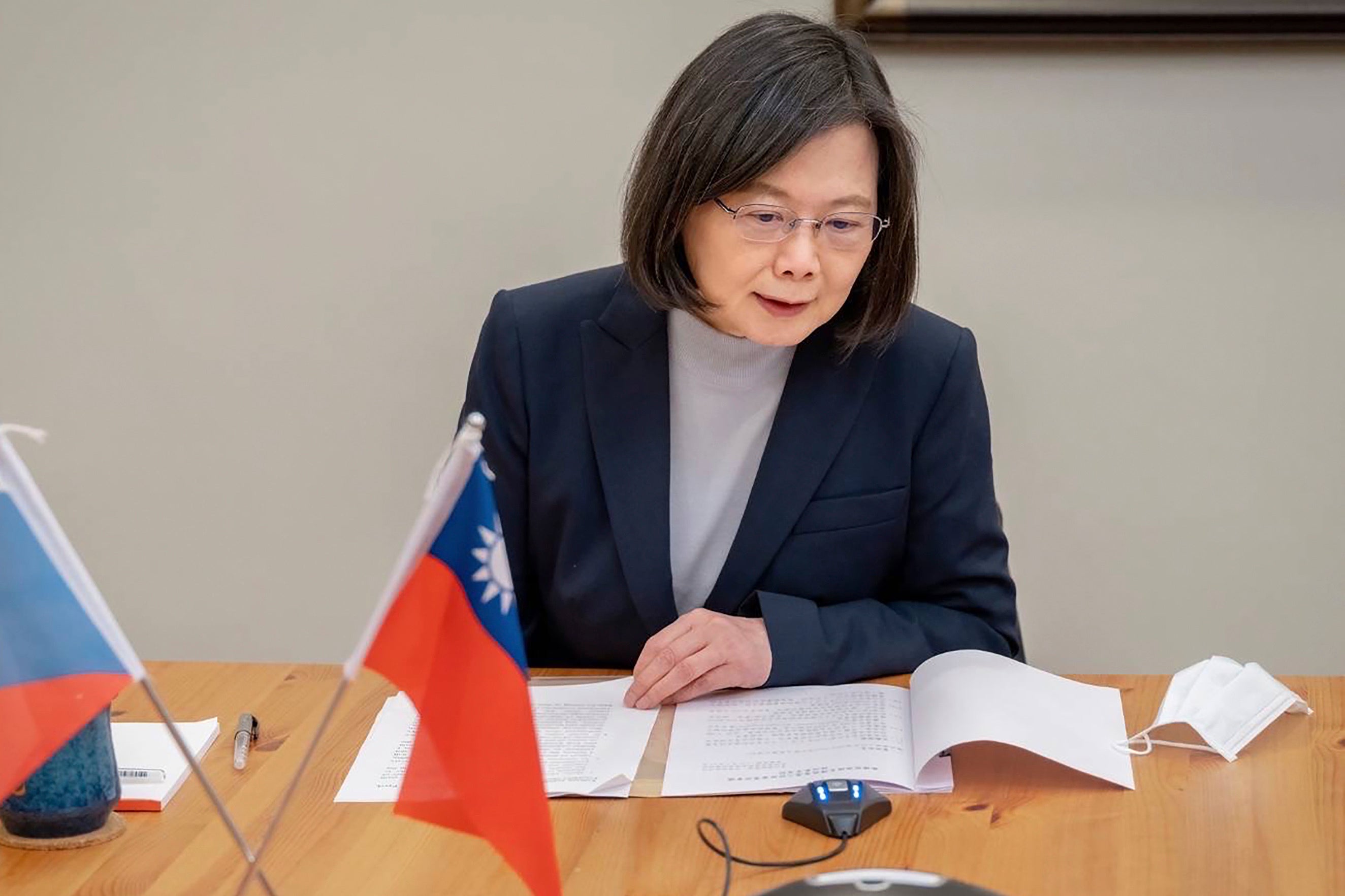US tells China not to overread likely Taiwan president visit
The Biden administration has been stressing to Beijing that an expected unofficial visit to the United States by Taiwan President Tsai Ing-wen should not be used as pretext by Beijing to step up aggressive activity in the Taiwan Strait

The Biden administration is putting out the word in advance that an expected unofficial stopover in the United States by Taiwan President Tsai Ing-wen would fall in line with recent precedent and should not be used as a pretext by Beijing to step up aggressive activity in the Taiwan Strait.
In recent weeks, senior U.S. officials in Washington and Beijing have underscored to their Chinese counterparts that transit visits through the United States during broader international travel by the Taiwanese president have been routine in recent years, according to a senior administration official. The official spoke on the condition of anonymity to discuss the sensitive matter.
In such visits in recent years, Tsai has met with members of Congress and the Taiwanese diaspora and has been welcomed by the chairperson of the American Institute in Taiwan, the U.S. government-run nonprofit that carries out unofficial relations with Taiwan.
Tsai transited through the United States six times between 2016 and 2019 before slowing international travel with the coronavirus pandemic. In reaction to those visits, China rhetorically lashed out against China and Taiwan.
The Biden administration is trying to avoid a replay of the heavy-handed response by China that came after then- House Speaker Nancy Pelosi, D-Calif., visited Taiwan last year.
Following Pelosi's August visit, Beijing launched missiles over Taiwan, deployed warships across the median line of the Taiwan Strait and carried out military exercises near the island. Beijing also suspended climate talks with the U.S. and restricted military-to-military communication with the Pentagon.
Beijing sees official American contact with Taiwan as encouragement to make the island’s decades-old de facto independence permanent, a step U.S. leaders say they don’t support. Pelosi was the highest-ranking elected American official to visit the island since Speaker Newt Gingrich in 1997. Under the “one China” policy, the U.S. recognizes Beijing as the government of China and doesn’t have diplomatic relations with Taiwan but has maintained that Taipei is an important partner in the Indo-Pacific.
U.S. officials are increasingly worried about China’s long-stated goals of unifying Taiwan with the mainland and the possibility of war over Taiwan. The self-ruled island democracy is claimed by Beijing as part of its territory. The 1979 Taiwan Relations Act, which has governed U.S. relations with the island, does not require the U.S. to step in militarily if China invades, but makes it American policy to ensure Taiwan has the resources to defend itself and to prevent any unilateral change of status by Beijing.
The difficult U.S.-China relationship has only become more complicated since Pelosi's visit.
Last month, President Joe Biden ordered a Chinese spy balloon shot out of the sky after it traversed the continental United States. And the Biden administration in recent weeks has said that U.S. intelligence findings show that China is weighing sending arms to Russia for its ongoing war in Ukraine, but it does not have evidence that suggests Beijing has decided to follow through on supplying Moscow.
The Biden administration postponed a planned visit to Beijing by Secretary of State Antony Blinken following the balloon controversy, but has signaled it would like to get such a visit back on track.
The White House on Monday also said officials are in talks with China about possible visits by Treasury Secretary Janet Yellen and Commerce Secretary Gina Raimondo focused on economic matters. Biden has also said he expects to soon hold a call with China's Xi Jinping.
White House National Security Council spokesman John Kirby said “keeping those lines of communication open” is still valuable.
Presidents Vladimir Putin and Xi met in Moscow on Monday, the first face-to-face meeting between the allies since before Russia launched its invasion more than a year ago.
The Taiwanese government earlier this month said that Tsai planned stops in New York and Southern California during an upcoming broader international trip but has yet to announce details about when she'll travel.
House Speaker Kevin McCarthy, a California Republican, has said he would meet with Tsai when she is in the U.S. and has not ruled out the possibility of traveling to Taiwan in a show of support.
Bookmark popover
Removed from bookmarks